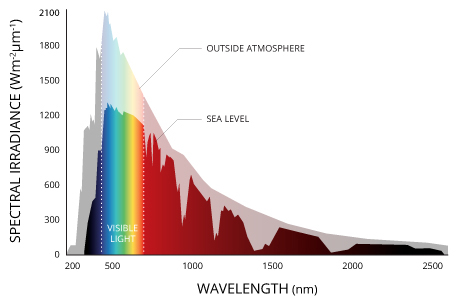Article by ChatCPT:
Limitations of Laboratory Studies on Skin Cancer and UVA Radiation
Introduction:
The correlation between sun exposure and skin cancer is a well-established scientific concept, supported by a variety of research methodologies, including laboratory studies, clinical trials, and epidemiological investigations. While these studies have significantly contributed to our understanding of the biological mechanisms underlying the link between UV radiation and skin cancer, it's crucial to acknowledge the inherent limitations of laboratory-based research.
Biological Mechanisms and Limitations:
Laboratory studies have extensively explored the biological mechanisms through which UV radiation, particularly UVB and UVA rays, can damage the DNA in skin cells, potentially leading to mutations associated with skin cancer. However, the controlled conditions of these experiments, utilizing specialized equipment to simulate UV light exposure, present limitations. Direct sunlight, with its broad spectrum of wavelengths, dynamic intensity, and diverse environmental factors, was not employed in these studies. Consequently, the extent to which laboratory-generated UV light accurately reflects the real-world impact of sunlight on skin remains a subject of scrutiny.
Animal and Cell Culture Studies:
Animal studies and in vitro experiments using human skin cells have played a crucial role in unraveling the causal relationship between sun exposure and skin cancer. These studies provide valuable insights into the effects of UV radiation on the development of skin cancers. Nonetheless, the use of artificial UV sources in these experiments, while allowing for precise control, introduces a potential gap in the translation of findings to natural sunlight exposure scenarios.
Clinical Trials and Real-World Application:
Clinical trials evaluating sun protection measures, such as sunscreen use, have contributed practical insights into skin cancer prevention. However, the controlled environment of clinical trials may not fully capture the complexity of real-world sun exposure conditions. The effectiveness of interventions in a controlled setting might not perfectly mirror their impact under diverse and uncontrolled environmental circumstances.
Geographical and Population Studies:
Observational studies exploring the correlation between sun exposure, latitude, and skin cancer rates across different populations contribute to the broader understanding of this relationship. However, the laboratory-based evidence, while informative, may not encapsulate the nuances and variations observed in real-world scenarios.
Photoprotection Studies and Artificial UV Sources:
Research on the effectiveness of sun protection measures, including sunscreen and protective clothing, underscores the importance of reducing UV exposure. Yet, the use of artificial UV sources in these studies raises questions about the applicability of findings to the diverse and dynamic conditions of natural sunlight.
Conclusion:
In conclusion, while laboratory studies provide valuable insights into the biological mechanisms linking UV radiation to skin cancer, their limitations must be recognized. The absence of direct sunlight in these experiments raises concerns about the generalizability of findings to real-world scenarios. A holistic understanding of the sun-skin cancer relationship necessitates a multifaceted approach that incorporates diverse research methodologies, emphasizing the importance of combining laboratory insights with real-world observations to advance our understanding of this complex and multifactorial phenomenon.


















































